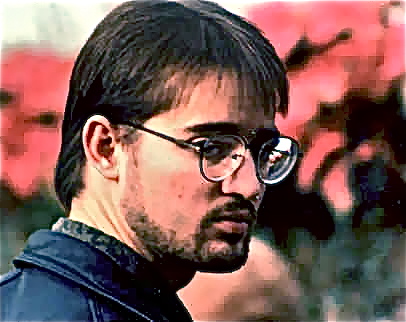Independent Study |
|
| Introduction | |
| Independent study gives the
advanced student an opportunity to pursue their academic interests
in a more special, sophisticated and guided manner. It should be
understood, however, that the Department of Sociology and Kent State,
for that matter, view this course as a learning experience to be taken
seriously. It is expected that the effort will require as much study, if
not more, than the same number of hours in a regular course. A student should not expect to do an individual investigation in a subject which is taught as a course in the Department, unless the student has already taken that course and wishes to do advanced work in that area. Above all, Independent Study is NOT for the aggrandizement of personal agendas nor attempts to prove personal opinion - it is science and the student must understand this completely. |
|
| PROTOCOL | |
| The following are steps a student will follow, under
Dr Jack's direction, to complete the course. Each step will be time
assigned according to parameters of the specific semester and will be
documented in the student's file. No superior grade will be earned if
not done in the following order: a. revised proposal b. comments on proposal c. final proposal d. comments on final proposal e. statement of the problem f. research on the problem g. outline of paper/research h. overview i. critique of overview j. write paper k. submit paper l. critique of paper and grade |
|
| CONCLUSION | |
|
To begin the process outlined
above, the student must submit a petition to the appropriate department
and attach a Statement of Intent. Once approved by the
department and named instructor, then the study may commence. ADDENDA 1. The "proposal" is simply a statement of why the student became interested in a specific topic. It must, however, also include a goal, i.e., there must be something that the student is attempting to learn from their investigation. It is NOT to prove a personal point, but to clarify their scientific curiosity. Value judgments of "rightness" and "wrongness" are inappropriate in a scientific paper. The social scientist simply describes "what is", not what they feel "shoud be". Generally, a student becomes interested in a particular piece of literature and builds their curiosity from there. This is an excellent starting point to create a dynamic argument for investigating a particular idea. The student should also demonstrate critical thinking in their proposal. A good indication here is the student's ability to "see the other side" of a particular position and its underlying logic. Students should not be surprised if their advisor does not agree with the proposal. Viable ideas do not come easy especially in the academic world where being a overly sensitive to criticism is not a virtue! 2. Once the proposal is agreed upon, the formal statement of the problem follows. Focus becomes important in that one must consider just ONE aspect and specifically dwell on it as a research project. A student should understand that "problem" does not infer something negative that has to be fixed. "Problem" means there is something to be solved through research - that is all! In other words, "what are you going to do, why are you going to do it and what procedures are you going to use"! Often it has been suggested that the best way to state the problem is to ask a rhetorical question about it. If the question raises an interesting question, then the investigation is on its way. A search of the literature here is very important to find out what has been done in the area and has anyone else asked a similar question and done something in the phenomena you wish to investigate. Research methodology begins now to emerge to elucidate the problem. Who has said what and what has been discovered that would shed light on what the student is investigating. NOW - focus again in on one thing to look at and what process would be the best for understanding - empirical studies, participant observer, existential, phenomenological methods or literature review? A questionnaire, a mailer or human subjects? Remember, human subjects require a long process of board approval and undergraduate students probably should keep within the bounds of a literature review to finish the project in time. 3. The overview is a statement of the problem, what one did and what one learned. it is as close to the final paper as possible. Consider it an extensive outline. Once it has been critiqued, then it is time to write the final paper. The final paper is easy - it is simply a statement and record of what you did and what you have learned in a thoughtful and carefully fabricated document. Most students do not remember writing their final paper, but they DO remember the soul searching that went into its research and methodology! Get going! |
|
